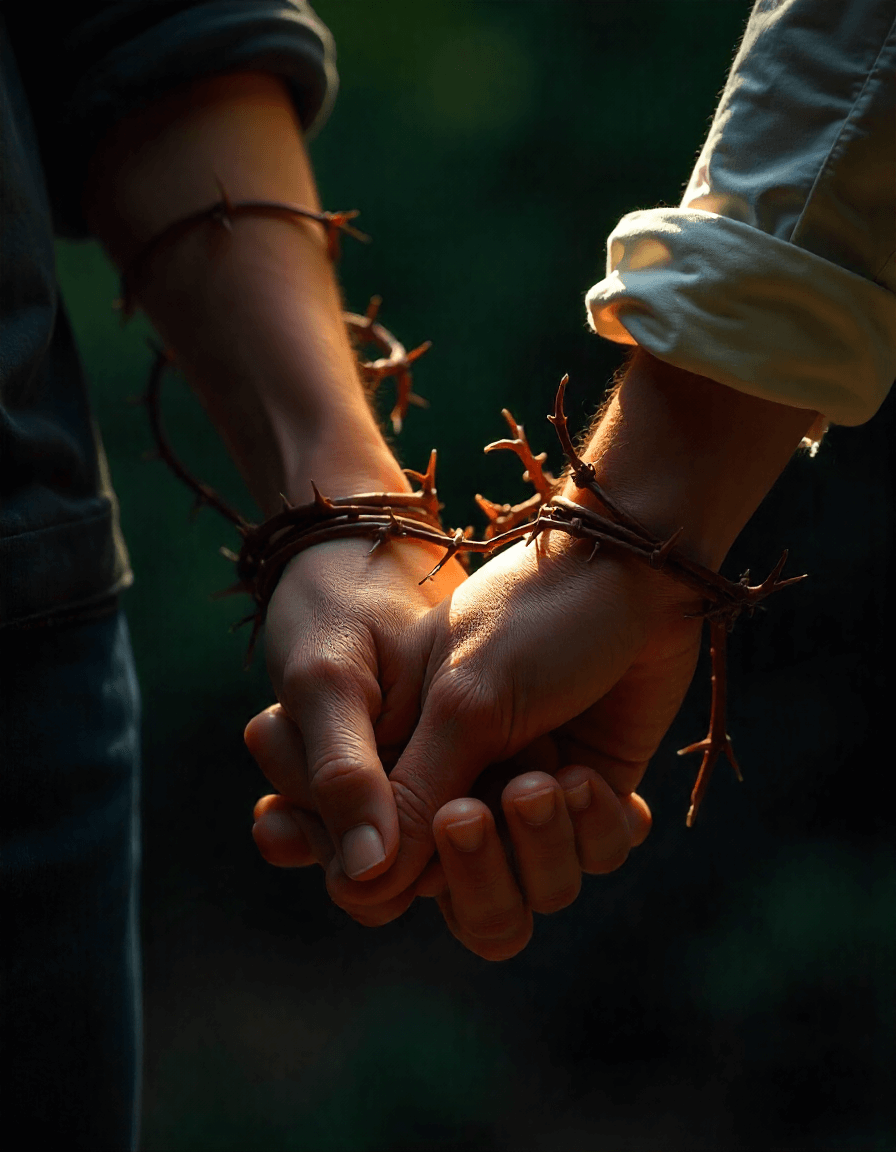Una relación tóxica es aquella en la que la dinámica entre dos personas causa más daño que bien. No siempre es evidente al principio, porque las pautas tóxicas pueden desarrollarse lentamente con el tiempo. Al principio, las cosas pueden parecer emocionantes, pero poco a poco empiezas a notar comportamientos que te hacen sentir agotado, sin apoyo o incluso inseguro. Esto puede ocurrir en parejas románticas, amistades, vínculos familiares o relaciones laborales. El problema es que la toxicidad afecta a tu bienestar emocional y puede dejar cicatrices duraderas si no se aborda. A veces, los rasgos tóxicos de la relación son sutiles, como las críticas constantes o los comportamientos controladores. Otras veces son más directos, como la manipulación, los ataques verbales o la negligencia emocional. Comprender este concepto es el primer paso para protegerte y reconocer cuándo mereces algo mejor.
Síntomas comunes de una relación tóxica
Reconocer las señales de alarma es clave para saber cuándo algo no va bien. Una señal importante es cuando la relación te hace sentir constantemente que te faltan al respeto o que no te escuchan. Es posible que camines sobre cáscaras de huevo, preocupado por las reacciones de tu pareja. Los celos y los comportamientos controladores también pueden ser señales de alarma, ya que limitan tu libertad y tu autoexpresión. Si sientes que estás constantemente dando mientras la otra persona recibe sin apreciarlo, ese desequilibrio puede agotarte. Las relaciones tóxicas suelen implicar manipulación, luz de gas o culparte de problemas que tú no has causado. A veces, incluso los buenos momentos parecen tener un coste demasiado alto. Cuando la relación te hace sentir más pequeño, con menos confianza o constantemente estresado, son señales claras de que algo va mal.
Cómo te hace sentir una relación tóxica
Una relación tóxica no sólo te perjudica en el momento, sino que puede cambiar la forma en que te ves a ti mismo. A menudo te hace sentir sin apoyo, sin aprecio y emocionalmente agotado. Puede que empieces a dudar de tu propia valía o a cuestionarte si tú eres el problema, incluso cuando no lo eres. La tensión constante puede provocar ansiedad o incluso depresión grave con el tiempo. Sentir que nunca eres lo bastante bueno o que tienes que cambiar constantemente para complacer a otra persona es muy perjudicial. En las relaciones sanas, te sientes seguro, respetado y valorado. En una relación tóxica, a menudo te sientes atrapado e impotente. Este desgaste emocional puede afectar a otras áreas de tu vida, como el trabajo, las amistades y las relaciones familiares.
Por qué la gente permanece en relaciones tóxicas
Es fácil preguntarse por qué alguien no se aleja sin más de una situación perjudicial. Pero la verdad es que dejarlo no siempre es sencillo. La gente suele quedarse porque se siente emocionalmente unida a su pareja, con la esperanza de que las cosas mejoren. Algunos creen que su pareja está dispuesta a cambiar, aferrándose a los buenos recuerdos e ignorando las señales de alarma. El miedo también influye: miedo a quedarse solo, a la inestabilidad económica o a cómo pueda reaccionar la otra persona. A veces, las personas sienten que han invertido demasiado tiempo como para abandonar ahora. El ciclo de buenos y malos momentos puede ser confuso y hacerte dudar de si la relación es realmente tóxica o sólo está pasando por una mala racha. Comprender estas barreras emocionales puede ayudarte a ti o a un ser querido a dar el primer paso hacia la libertad.
Pasos a seguir si estás en una relación tóxica
Si te das cuenta de que estás en una relación tóxica, el primer paso es reconocerlo sin culparte. A partir de ahí, piensa en lo que necesitas para sentirte seguro y respetado. Establecer límites claros es esencial, y ceñirte a ellos demuestra que te valoras. Puede que necesites el apoyo de amigos de confianza, familiares o incluso un terapeuta que te ayude a dar los siguientes pasos. En algunos casos, las conversaciones abiertas y sinceras pueden conducir a cambios positivos, pero en otros, la opción más segura puede ser marcharse. Recuerda que te mereces relaciones que te eleven, no relaciones que te hundan. Si alguien se preocupa de verdad, estará dispuesto a cambiar comportamientos perjudiciales. Si no es así, es señal de que seguir adelante podría ser la decisión más saludable.
El camino hacia la curación tras la salida
Dejar una relación tóxica puede resultar liberador y abrumador a la vez. Es posible que experimentes una mezcla de alivio y tristeza, sobre todo si llevas mucho tiempo con esa persona. Es importante que te des tiempo para curarte, recuperar la confianza en ti mismo y volver a conectar con tu propia identidad. Rodéate de personas que te hagan sentir querido y apoyado. Explora aficiones o actividades que te aporten alegría y te recuerden lo que vales. La curación no se produce de la noche a la mañana, pero cada paso que das en la dirección correcta te fortalece. Con el tiempo, empezarás a ver que dejar ir la toxicidad deja espacio para relaciones más sanas y felices.













